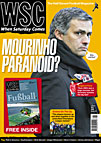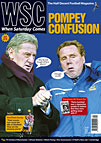 It says a lot about Germany that they managed to reach the 2002 World Cup final in the middle of a prolonged slump but, as Paul Joyce explains, the expectations for this summer’s hosts and poor recent results leave their long-distance coach under pressure
It says a lot about Germany that they managed to reach the 2002 World Cup final in the middle of a prolonged slump but, as Paul Joyce explains, the expectations for this summer’s hosts and poor recent results leave their long-distance coach under pressure
After a 4-1 mauling by Italy in February left Germany without a victory over a top-ranked nation since defeating England at Wembley in October 2000, CDU politician Norbert Barthle demanded that manager Jürgen Klinsmann be hauled before the national sports committee “to explain what his concept is and how Germany can win the World Cup”. With a mere three per cent of the populace believing that a side ranked three places below Iran could now win the tournament, Federal Chancellor Angela Merkel herself felt obliged to give the under-fire Klinsmann the dreaded vote of confidence: she was convinced that he and his team were “on the right path”.
